Allergies in horses: how to treat them?
It is not always easy to diagnose allergies in horses. Indeed, the causes can be multiple such as pollen from plants, food or hay dust.
Allergic symptoms in a horse are often associated with watery eyes, coughing, breathing difficulties, but also digestive system disturbances.
It is essential to treat the horse as soon as the first symptoms appear to avoid any aggravation. Fortunately, there are natural solutions exist to quickly and effectively relieve the various disorders.
Lore & Science products are specially designed to offer therapeutic solutions made from 100% natural plants.
Allergy, what are we talking about?
Allergy is characterized by an excessive immune reaction of the body to a foreign body. The purpose of such a defensive action is to fight against the presence of the allergen, a substance that triggers an immune reaction.
Just as with humans, allergies in horses can occur as a result of various factors, starting with pollen. Not to mention dust, food, insect bites and mold that can be found in the horse's environment.
Contrary to humans, horses are unable to heal themselves in the face of such an aggression. Treatment is therefore essential to avoid any risk of complications. It should be noted that certain allergies, particularly skin allergies, can cause severe itching and lead to serious injuries.
Causes of allergies in horses
1 Plants and dust
In hypersensitive horses, plant pollen and dust particles are the most common causes of allergy. They are difficult to control and cause respiratory problems.
Not to mention that the presence of fungus in straw and wet hay can be an allergy trigger for the horse. However, these symptoms can be treated with natural products such as Allergo Stop by Lore & Science.
2 Food products
Intolerance to a food ingredient is a common source of allergy. If the animal is greedy, it may be tempted by herbs or even fruits that can be dangerous. These foods, although harmless at first glance, can cause allergic reactions. It is therefore important to check the horse regularly in the pasture and during walks.
Food allergy in horses can also be related to an external component that has been deposited on the feed, such as pesticide residues. It can also be an allergy to biochemical compounds. In this case, we speak ofintolerance to a cerealprotein such as oats, barley or wheat, but corn and soy are most often implicated.
3 Injections
There are, in fact, allergies that manifest themselves following the use of medications and more specifically certain antibiotics.
Procaine penicillin, which is often used in equine treatments, can cause severe allergies and can even be fatal for the horse. This phenomenon is observed when the product is injected intravenously instead of intramuscularly. Indeed, it is important to place the syringe inside the neck muscle and not in a vein.
Allergic reactions to insect bites are all the more frequent, especially in summer. The most common insect bites are horse flies, wasps, bees and culicoides gnats, which can transmit diseases such as summer dermatitis. Summer dermatitis is a chronic inflammatory skin disease characterized by skin lesions and hairless areas.
Diagnosing allergic symptoms in horses
1 The eyes
The eyes are the reliable witnesses in case of allergy in horses. Tearing can be observed, often caused by pollen or dust, but not only. Other allergens, whether respiratory, food or digestive, can also cause ocular symptoms.
Among other external signs, the eyes may be swollen and disproportionate with one eye larger than the other.
2 The lungs
An allergic reaction in horses can cause respiratory problems with symptoms similar to an asthma attack. For example, pollen allergy can cause chronic inflammation resulting in lung congestion due to mucus accumulation.
These symptoms cause a decrease in energy and respiratory discomfort during an activity. The horse may cough during exercise.
3 The skin
It is not uncommon for an allergy to cause hives. These are in fact subcutaneous swellings that do not have any external wounds.
Depending on the case and the nature of the allergen, the horse may also present superficial lesions of eczema-type dermatitis. Sores and crusts may appear with skin that becomes granular. Insect bites are often the cause of such a reaction.
4 The digestive system
Digestive system disorders are manifested by difficulty digesting, diarrhea, loss of appetite, fatigue and even colic in certain situations. The ingestion of a food allergen is responsible in most cases.
5 The nose
If the horse has an abnormal and abundant runny nose, it is most likely a temporary respiratory allergy or emphysema, a chronic respiratory disease caused by hypersensitivity to dust.
Also, strong coughs can be detected in the horse when it is working but also when it is at rest.
Managing allergies in horses
Using Lore & Science natural products
In case of breathing difficulties and asthma, we recommend using the product Allergo Stop. Based on medicinal herbs and essential oils, it is great for relieving the horse that has difficulty breathing and suffers from emphysema.
What results can we expect from this treatment? From the very first use, you'll notice an improvement in breathing, and the disappearance of coughing and sneezing. The product is mixed directly into food.
Preventing allergies in horses
In order to fight against allergies in the long term, it is important tomaintain your livingenvironment, especially by regularly mowing tall grass to avoid the accumulation of pollen and insects.
It is also possible to use repellent sprays It is also possible to use herbal sprays to fight insect bites as much as possible.
In general, if symptoms are detected, it is essential to call a veterinarian to treat the allergy as soon as possible.





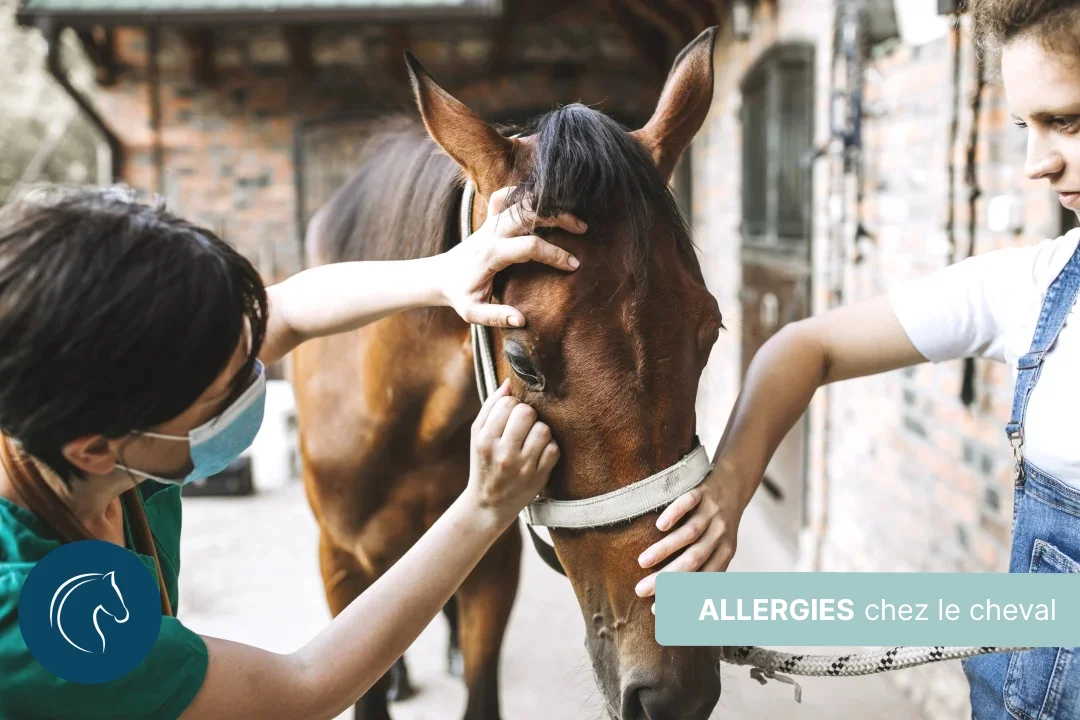

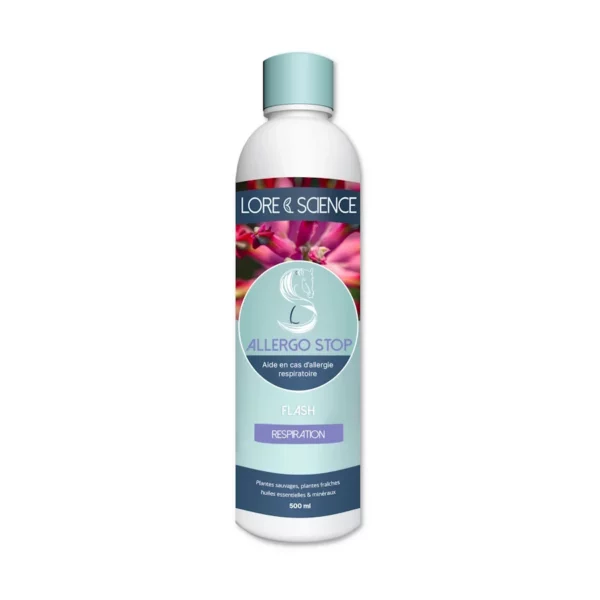
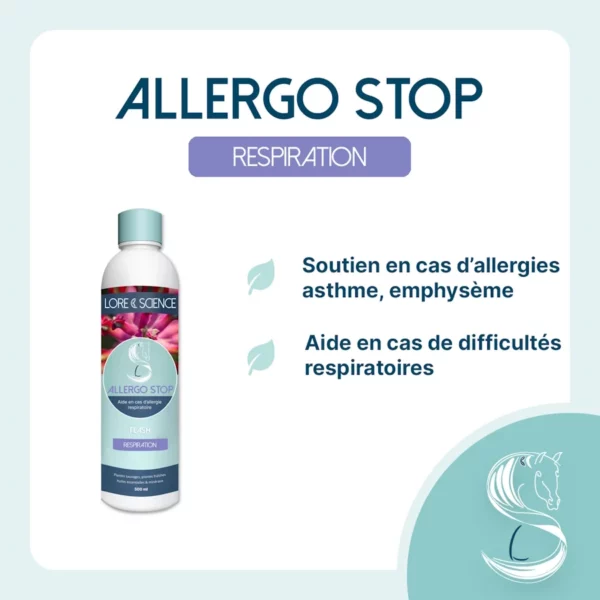
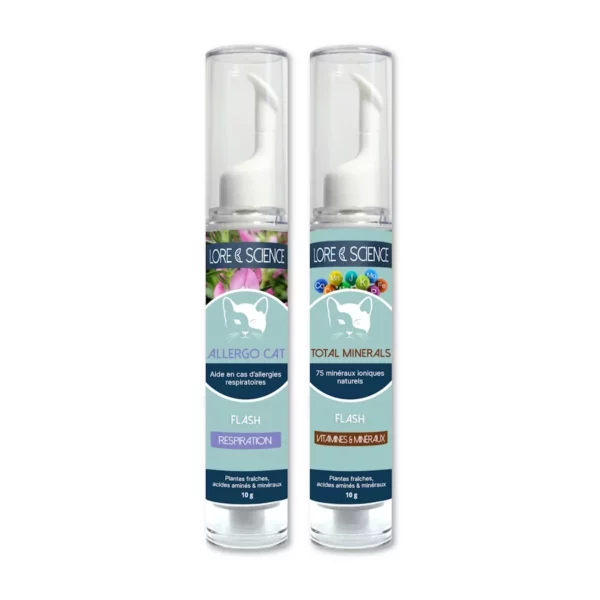
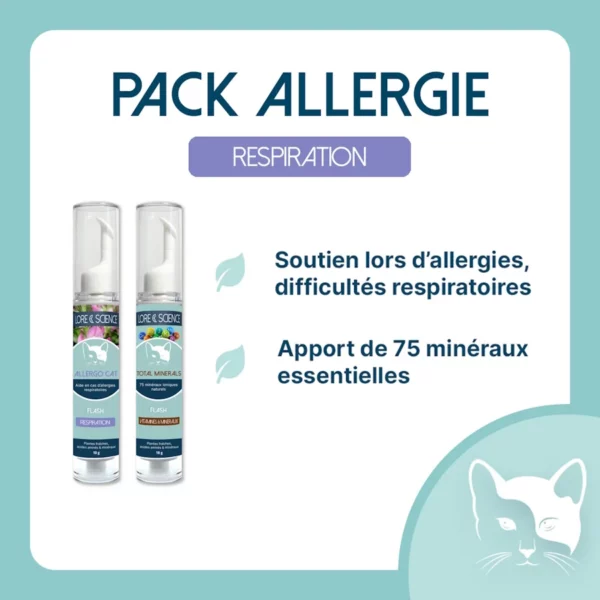
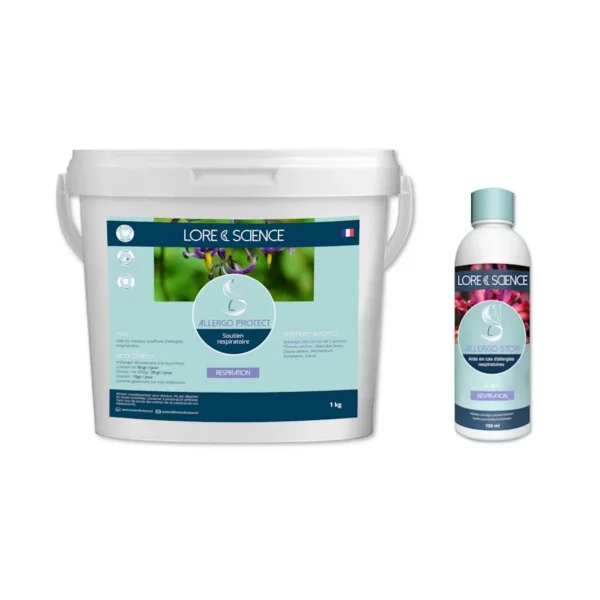
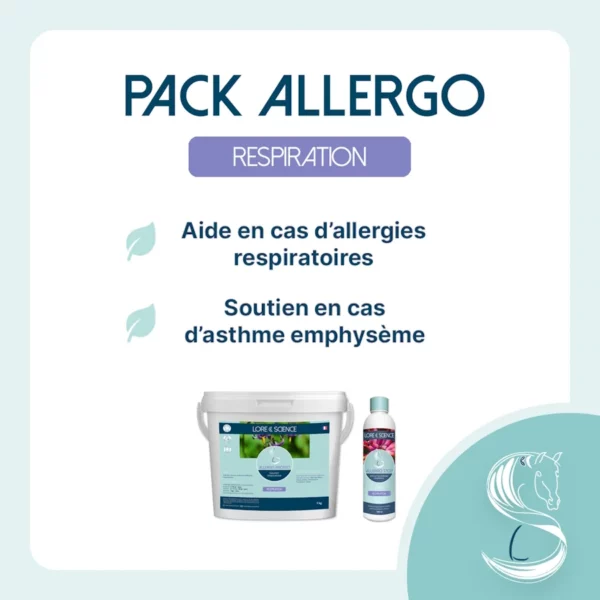
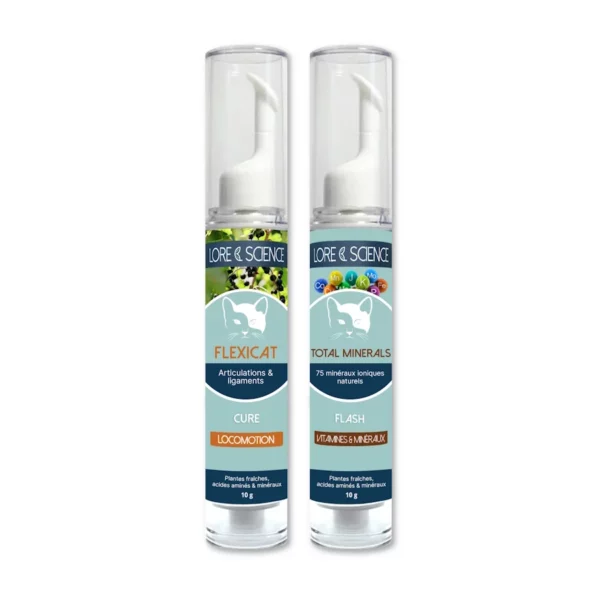
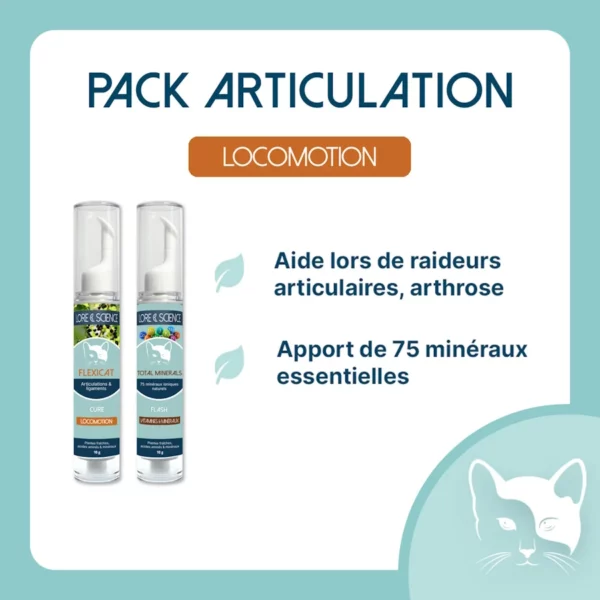






5 réactions sur "Allergies in horses: how to treat them?"
Hola, escribe al correo: conseils@loreandscience.fr
Tengo una yegua con una enfermedad conocida como mis mis me pueden ayudar
Hola José, nos puedes mandar un coreo electronico: conseils@loreandscience.com>Déjanos tu numero de telefono, y te llamo.
Buenas tengo un caballo que con el freno se ahoga que se le puede hacer
Hola, escribe al correo: conseils@loreandscience.fr